Henning Carlsen
Nacimiento : 1927-06-04, Aalborg, Denmark
Muerte : 2014-05-30
Historia
Henning Carlsen (4 June 1927 – 30 May 2014) was a Danish filmmaker.
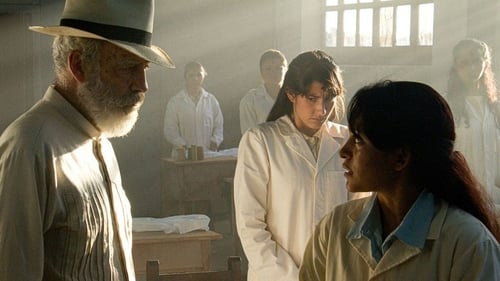
Screenplay
Para celebrar su 90 cumpleaños, un viejo periodista soltero, Sabio, que desde pequeño acostumbrado a la intimidad con las prostitutas, decide regalarse una intensa noche de amor con una adolescente virgen. Rosa Cabarcas, su vieja amiga como madame de burdel le arregla la joven ideal, Delgadina, obrera de fábrica, que vende su virginidad para sostener a su familia, pero cuando la ve durmiendo angelicalmente, pierde el interés por el puro placer y se enamora. con ella. Ese amor no estaba destinado a ser verdadero, pero el destino cambia, y esa esperanza nace de una oportunidad para el amor desenfrenado.

Director
Para celebrar su 90 cumpleaños, un viejo periodista soltero, Sabio, que desde pequeño acostumbrado a la intimidad con las prostitutas, decide regalarse una intensa noche de amor con una adolescente virgen. Rosa Cabarcas, su vieja amiga como madame de burdel le arregla la joven ideal, Delgadina, obrera de fábrica, que vende su virginidad para sostener a su familia, pero cuando la ve durmiendo angelicalmente, pierde el interés por el puro placer y se enamora. con ella. Ese amor no estaba destinado a ser verdadero, pero el destino cambia, y esa esperanza nace de una oportunidad para el amor desenfrenado.

Krzysztof Komeda was a jazz pianist and film composer. With compositions like the lullaby for Rosemary's Baby (1968) by Roman Polanski, Komeda succeeded in writing his own chapter in the history of soundtracks. This documentary follows the life story of the composer by the means of his melodic sounds. It is a reflection on his soundtracks, which changed the common film scores forever. It is a contemporary document about the attitude to life in a time of social, political and cultural change after war, about work and exodus of Polish artists in the 50s and 60s. A story about how film music is created and how it affects people. Directors who worked with Komeda and who are also friends talk about him: Roman Polanski, Jerzy Skolimowski, Henning Carlsen and Andrzej Wajda. His wife, Zofia Komeda, and his sister, Irena Orlowska, recollect him.

Self
What is the state of cinema and what being a filmmaker means? What are the measures taken to protect authors' copyright? What is their legal status in different countries? (Sequel to “Filmmakers vs. Tycoons.”)

Himself
Ensayo cinematográfico en defensa de los Derechos Morales de los cineastas frente a las manipulaciones que sufren las películas desde los orígenes del cine hasta hoy. Incluye fragmentos de importantes películas, como una escena en la que Felipe II (1559-1598) recorta una pintura de Tiziano porque no cabía en el espacio que le había reservado en El Escorial. Con esta acción el Rey de España se convirtió en el inventor del panning-scanning que en nuestra época altera el formato original de las películas. Este ensayo documental tiene su continuación en "Cineastas en acción", también del año 2005. (FILMAFFINITY)

Writer
Tobias Jacobsen is 42. When the doctors tell him he is fatally ill, the earth opens up beneath him and he finds himself plunging into the abyss. It makes him think of the time he was 13 and his girlfriend got him to jump off the balcony of her father's house with a sun umbrella for a parachute. Two stories separated by 29 years are told in parallel, but gradually intertwine into one drama. Both stories have moments of joy and tragedy, as fates wondrously separate and are brought back together again. It is a story about making a leap of faith, trusting in yourself and realizing that, ultimately, life is no good without humour, even of the darker variety.

Director
Tobias Jacobsen is 42. When the doctors tell him he is fatally ill, the earth opens up beneath him and he finds himself plunging into the abyss. It makes him think of the time he was 13 and his girlfriend got him to jump off the balcony of her father's house with a sun umbrella for a parachute. Two stories separated by 29 years are told in parallel, but gradually intertwine into one drama. Both stories have moments of joy and tragedy, as fates wondrously separate and are brought back together again. It is a story about making a leap of faith, trusting in yourself and realizing that, ultimately, life is no good without humour, even of the darker variety.

Director
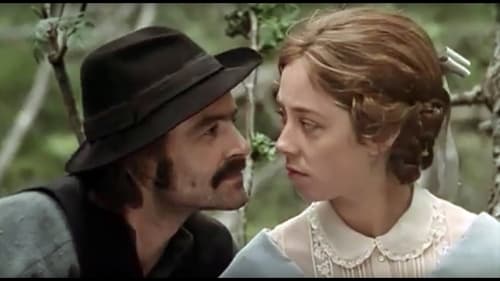
Writer
El teniente Thomas Glahn llega a las regiones del norte para vivir tranquilamente en el bosque y cazar para su propia subsistencia. Solo en el bosque, con un perro como única compañía, oscila entre la calma y el desasosiego. En su trato con las gentes del lugar conoce y se obsesiona con Edvarda, la hija del mercader. Un epílogo, ambientado en el trópico y contado por un compañero de caza, habla del suicidio de Glahn.

Director
El teniente Thomas Glahn llega a las regiones del norte para vivir tranquilamente en el bosque y cazar para su propia subsistencia. Solo en el bosque, con un perro como única compañía, oscila entre la calma y el desasosiego. En su trato con las gentes del lugar conoce y se obsesiona con Edvarda, la hija del mercader. Un epílogo, ambientado en el trópico y contado por un compañero de caza, habla del suicidio de Glahn.
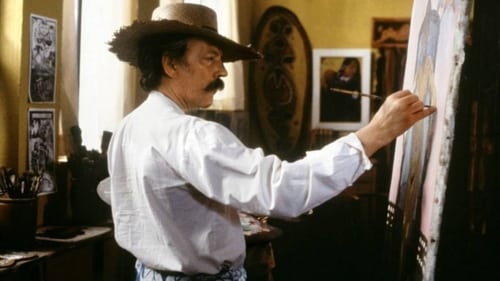
Producer
Chronicling a period of time in Paul Gauguin's life, this film follows him through his struggles in love and the financial problems caused by the inability to sell his artwork.

Scenario Writer
Chronicling a period of time in Paul Gauguin's life, this film follows him through his struggles in love and the financial problems caused by the inability to sell his artwork.

Director
Chronicling a period of time in Paul Gauguin's life, this film follows him through his struggles in love and the financial problems caused by the inability to sell his artwork.

Director

Editor
Gathered at a funeral for a successful business man, the testament is to be read. They will all inherit, with a big IF; if the family company is to be joint run by all the heirs.

Director
The late 1930s. A young enemployed, unskilled worker walks through the streets of Copenhagen, sustaining himself partly on the dole and free soup-kitchen meals and partly on day-dreams. He spends time at a cemetry studying headstone inscriptions. Mild-mannered and of poetic bent, he understands little of an intellectual friend's advice and shies away from the love of a woman who shares her bed with him.

Director
Svante has disappeared and a journalist seeks Benny to hear about his relationship with Svante. In retrospect be seen Benny and Svante with Svante lived with Mrs. Jensen in Copenhagen. When Benny and Svante last meeting would Benny sure to Svante show was released. Benny seek police to report Svante missed and have given a description of Svante. For several years, we follow Benny hunt for Svante including through interviews with Nina. Police seek out the places where Svante traded and the nerve clinic he was hospitalized.
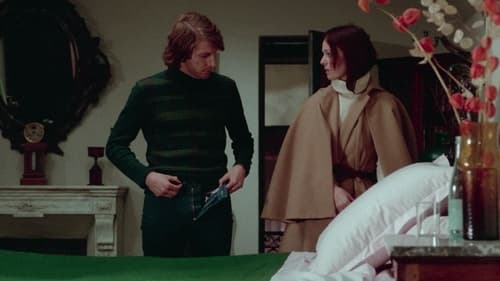
Writer
After having been rescued from suicide, a young man is the object of a bet by his doctor that the doctor can help him recover his joy in life. Ironically, the doctor's life is not a very happy one either, and his boast has a hollow sound. For one thing, although he seemingly has a "happy divorce," in which he, his ex-wife and her new husband are all great pals, it's not true. He wants his wife back. All sorts of complications arise out of these lies and distortions.

Director
After having been rescued from suicide, a young man is the object of a bet by his doctor that the doctor can help him recover his joy in life. Ironically, the doctor's life is not a very happy one either, and his boast has a hollow sound. For one thing, although he seemingly has a "happy divorce," in which he, his ex-wife and her new husband are all great pals, it's not true. He wants his wife back. All sorts of complications arise out of these lies and distortions.

Writer
This is a film about the stuff dreams are made of, yet, there is nothing elevated in this concept, on the contrary. The characters around the bar Strudsen (the ostrich) are doing what ostriches do, hiding themselves from the threats of life and keeping their dreams to themselves. Scriptwriter Benny Andersen being a poet is rendering a loving portrait of a number of persons, who fail to try to make their dreams come true, possibly not being sufficiently dissatisfied with their life after all. The manager would like a bar of his own but dare not admit to it, the butcher would like to be an opera singer, the window cleaner (sorry, window polisher) is secretly in love with the bar lady, but dare not show it and the pianist willingly listens to all the different dreams being presented to him. This film was the best accomplished movie from Henning Carlsen since his debut with 'Sult'.

Director
This is a film about the stuff dreams are made of, yet, there is nothing elevated in this concept, on the contrary. The characters around the bar Strudsen (the ostrich) are doing what ostriches do, hiding themselves from the threats of life and keeping their dreams to themselves. Scriptwriter Benny Andersen being a poet is rendering a loving portrait of a number of persons, who fail to try to make their dreams come true, possibly not being sufficiently dissatisfied with their life after all. The manager would like a bar of his own but dare not admit to it, the butcher would like to be an opera singer, the window cleaner (sorry, window polisher) is secretly in love with the bar lady, but dare not show it and the pianist willingly listens to all the different dreams being presented to him. This film was the best accomplished movie from Henning Carlsen since his debut with 'Sult'.

This documentary examines a feature of Danish life in the late '60s and early '70s: the political commune. In a series of stiff and unrevealing interviews with members of the Kloevedal Commune, "Mao's Pleasure," director Carlssen seeks to discover why they have chosen to live communally. Turning the tables on the director, members of the commune also interview people who live ordinary, middle-class lives, ostensibly to find out why they chose their "lifestyles." Other footage concerns the Annisse Commune, a less radical organization which predates the Kloevedal Commune by decades. A highlight of the film is an interview with a very old woman who lives with and talks chiefly with her cats.

Director
This documentary examines a feature of Danish life in the late '60s and early '70s: the political commune. In a series of stiff and unrevealing interviews with members of the Kloevedal Commune, "Mao's Pleasure," director Carlssen seeks to discover why they have chosen to live communally. Turning the tables on the director, members of the commune also interview people who live ordinary, middle-class lives, ostensibly to find out why they chose their "lifestyles." Other footage concerns the Annisse Commune, a less radical organization which predates the Kloevedal Commune by decades. A highlight of the film is an interview with a very old woman who lives with and talks chiefly with her cats.

Writer
A veteran sea captain abducts his niece for what he believes is his last chance at love. As the sad demon of the ocean Klabautermanden watches the passing of doomed ships, the niece awakens in her uncle's cabin. She makes him marry her but never allows the tyrannical captain to ever touch her. For eight years, the ship never docks as the malnourished crew wishes for death.

Director
A veteran sea captain abducts his niece for what he believes is his last chance at love. As the sad demon of the ocean Klabautermanden watches the passing of doomed ships, the niece awakens in her uncle's cabin. She makes him marry her but never allows the tyrannical captain to ever touch her. For eight years, the ship never docks as the malnourished crew wishes for death.

Editor
A dancer and a Danish student meet on a train; she is going on tour to Rio, and he decides to follow her. Based on the novel by Jens August Schade.

Producer
A dancer and a Danish student meet on a train; she is going on tour to Rio, and he decides to follow her. Based on the novel by Jens August Schade.

Writer
A dancer and a Danish student meet on a train; she is going on tour to Rio, and he decides to follow her. Based on the novel by Jens August Schade.

Director
A dancer and a Danish student meet on a train; she is going on tour to Rio, and he decides to follow her. Based on the novel by Jens August Schade.
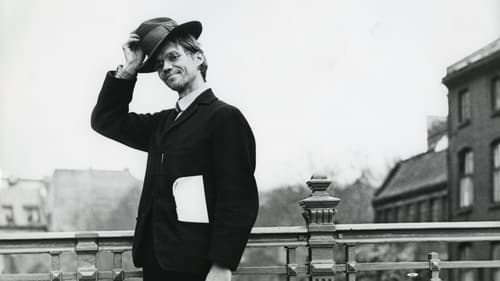
Producer
Un escritor anónimo malvive por las calles de Kristiania (antiguo nombre del Oslo actual) intentando vender sus escritos a las revistas. Adaptación de la magna novela del noruego Knut Hamsun, Premio Nobel de Literatura en 1920.

Editor
Un escritor anónimo malvive por las calles de Kristiania (antiguo nombre del Oslo actual) intentando vender sus escritos a las revistas. Adaptación de la magna novela del noruego Knut Hamsun, Premio Nobel de Literatura en 1920.

Writer
Un escritor anónimo malvive por las calles de Kristiania (antiguo nombre del Oslo actual) intentando vender sus escritos a las revistas. Adaptación de la magna novela del noruego Knut Hamsun, Premio Nobel de Literatura en 1920.

Director
Un escritor anónimo malvive por las calles de Kristiania (antiguo nombre del Oslo actual) intentando vender sus escritos a las revistas. Adaptación de la magna novela del noruego Knut Hamsun, Premio Nobel de Literatura en 1920.
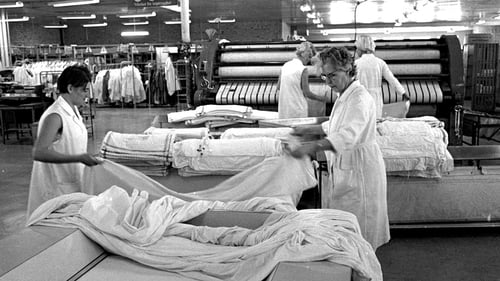
Editor
A group of women are workmates at a laundry. Rike is spreading a rumor about the manager Marta, a rumor that Marta is a lesbian and that she once tried to seduce Rike. This leads to an explosive situation at the workplace.

Director
A group of women are workmates at a laundry. Rike is spreading a rumor about the manager Marta, a rumor that Marta is a lesbian and that she once tried to seduce Rike. This leads to an explosive situation at the workplace.

Director
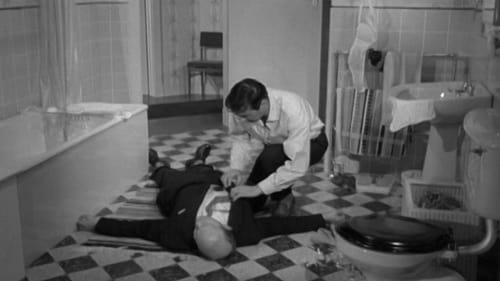
Producer
The story begins when Toby (Ivan Jackson), a young English businessman, arrives in South Africa to take charge of a publishing firm. He knows little about apartheid and so at first sees no contradiction in developing a relationship with an elite, upper-class white woman and with a woman dedicated to fighting apartheid. But as Toby makes friends with one of the black South Africans (Zaku Mokae), and as he registers both the subtle and more obvious, deep-seated racial prejudices of the minority white population, some of the truth of the oppression here begins to dawn. That is brought to a head when tragedy strikes.

Writer
The story begins when Toby (Ivan Jackson), a young English businessman, arrives in South Africa to take charge of a publishing firm. He knows little about apartheid and so at first sees no contradiction in developing a relationship with an elite, upper-class white woman and with a woman dedicated to fighting apartheid. But as Toby makes friends with one of the black South Africans (Zaku Mokae), and as he registers both the subtle and more obvious, deep-seated racial prejudices of the minority white population, some of the truth of the oppression here begins to dawn. That is brought to a head when tragedy strikes.

Director
The story begins when Toby (Ivan Jackson), a young English businessman, arrives in South Africa to take charge of a publishing firm. He knows little about apartheid and so at first sees no contradiction in developing a relationship with an elite, upper-class white woman and with a woman dedicated to fighting apartheid. But as Toby makes friends with one of the black South Africans (Zaku Mokae), and as he registers both the subtle and more obvious, deep-seated racial prejudices of the minority white population, some of the truth of the oppression here begins to dawn. That is brought to a head when tragedy strikes.

Director
Henning Carlsen's cinéma vérité trilogy on life and relationships begins with a portrait of elderly people in Denmark.

Director
The second part of Carlsen's documentary trilogy explores the structure and importance of the family unit as an institution, and the opinions of family members as individuals.

Director
The third and final part of Carlsen's documentary trilogy explores what it means to be young or old.





































